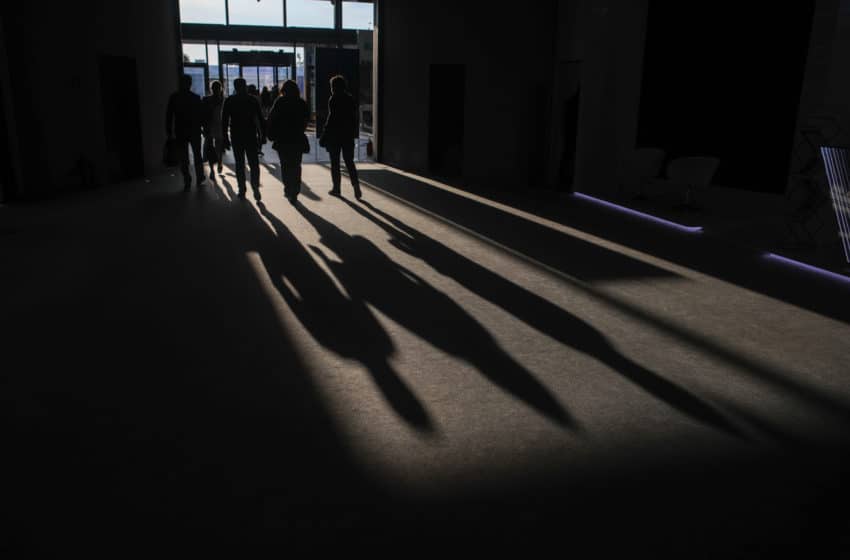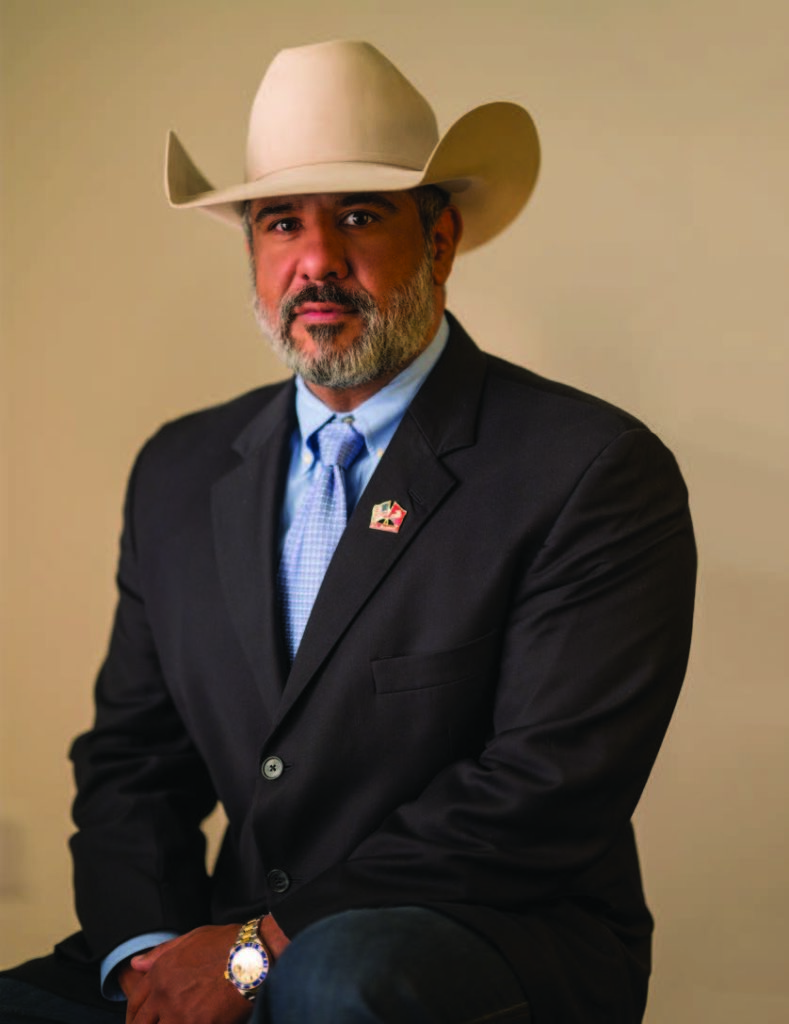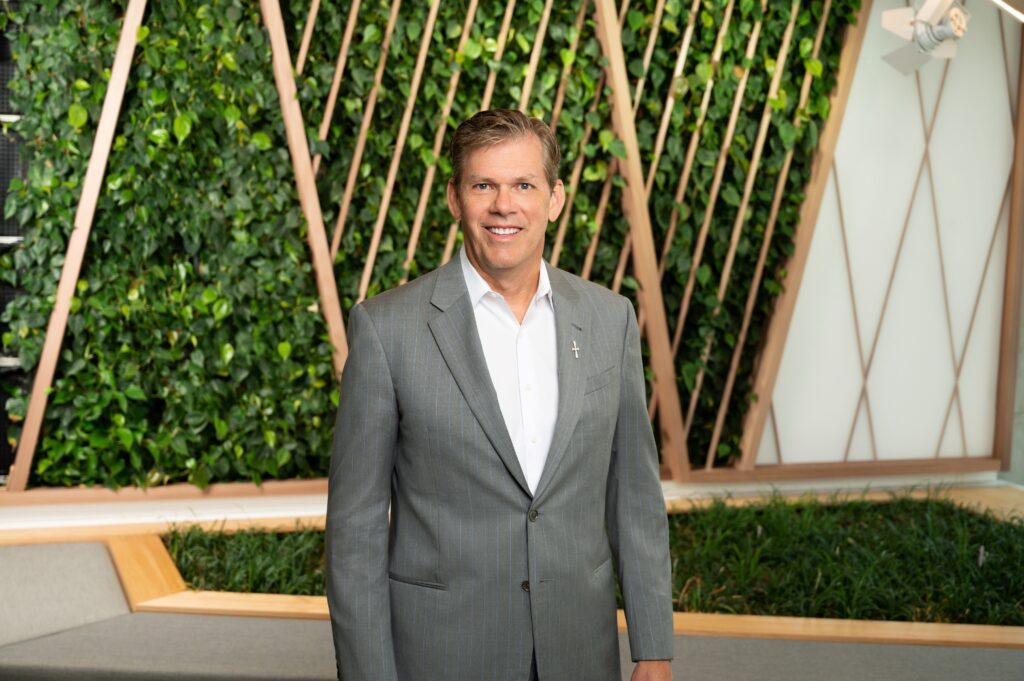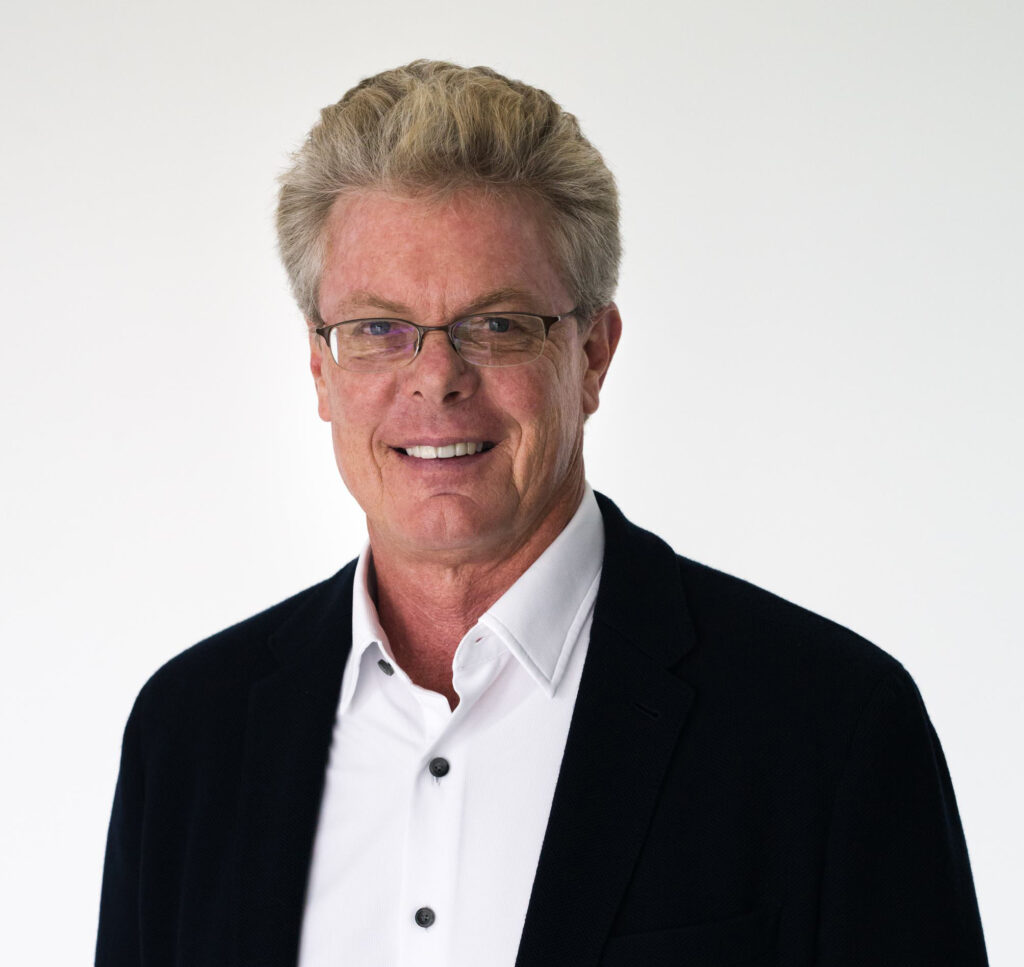The Bodyguard: A Conversation with Mike Ramirez, Personal Protection Expert

In 2020, personal and diplomatic security protection isn’t just for heads of state. Increasingly, businesspeople are enlisting the help and services of professionals like Mike Ramirez, who provide personal and executive security protection in dangerous situations and places, whether at a conference abroad or in a warzone. We asked Ramirez to tell us about his job—and what business leaders should know about it.
Texas CEO Magazine: How did you get into the profession of personal protection?
Ramirez: I grew up about an hour southeast of San Antonio in a small town called Kenedy, Texas. From a young age I always knew that I wanted to be a Marine. In my senior year of high school, I contacted a recruiter who then came to talk to me about the Marine Corps at my parents’ house. After about an hour of the recruiter telling me all about what the Marine Corps had to offer and all the places I would get to travel to, I signed my contract, and the path to where I am today began. I spent the next four years as an Infantry Marine and a Security Force Marine. In the mid-1990s, I got my first taste of military personal protection while on a special duty assignment providing armed protection for a high-ranking officer. At that time, it wasn’t called “personal protection”—you were just a military enlisted man assigned to an officer because their rank warranted protection by a Marine.
After four years in the Marine Corps, I came back to Texas and went to work for the Texas Department of Corrections. I worked in a maximum-security state penitentiary in my hometown of Kenedy. My first year, I worked in administrative segregation, where offenders are locked up 23 hours a day because of hostile behavior or because they had threats on their lives. You’re worried about your own personal protection at that point. Needless to say, it was not a very cordial environment, but I learned a lot in my first year at the penitentiary. For one, I learned how to read people very quickly and that no two situations are ever the same. Nothing is what it appears to be when you walk into a cell block.
After my first year in administrative segregation, I took another position as a correctional field officer. As a CFO, you ride on horseback every day and take offenders to work out in the fields. The penitentiary I worked at sat on a large amount of land, so the prison used the offenders to do the labor and farm the land. We would take a squad of anywhere from 25 to 50 offenders per field officer and have them plant seeds and harvest crops.
Later, I was promoted to K-9 sergeant. My job was primarily breeding, raising, and training dogs to track humans. If an offender tried to escape from our prison or any other prison, we would deploy our human-tracking dogs to track and capture them. We also assisted local and state police with our K-9s. If they conducted a traffic stop and someone bailed on them, they would call us, and we’d take our dogs out and assist in capturing the suspect.
Texas CEO Magazine: That sounds a little more pleasant than administrative segregation.
Ramirez: It was! It was one of the most rewarding jobs and if I ever win the Lotto, I would go back and do it for free. Getting to ride horses all day and work with dogs was a very rewarding experience.
Around 2003, the war in Afghanistan had been going for a couple of years and the war in Iraq had started, I was still working for the penitentiary. I kept in touch with guys I had been in the Marines with. When I shared with them that I was working at a penitentiary, they would say, “Man, that sounds like a dangerous job for not very much money.” They went on to share with me about private military contracting. They informed me that the US government was paying former military guys, like myself, good money for the skills the Marine Corps taught us.
I thought, “Well, I’ll go give it a year, save that money, and come back and decide what I want to do next.” I went through the extreme vetting and grueling selection process, then headed to Iraq. Before I could blink, I’d been there 10 years. My first clients that I provided personal protection for were US civilian contractors who were rebuilding the infrastructure, water-treatment facilities, and power plants that had been damaged in the bombings during the beginning of the Iraq War. From there I went on to providing diplomatic protection for US ambassadors, secretaries of state, diplomats, senators, congresspeople, and many other government officials traveling in, to, and around Iraq.
We also provided 24/7 protection for the US ambassador assigned out of the embassy in Iraq. We conducted the advance surveys and risk assessments, coordinated the routes we’d be taking, put together evacuation and emergency plans should we come under attack, which we did on many occasions. When the war in Iraq kicked off, there became a need for former military guys like me with special skills to provide protection for designated government officials because our military was doing the offensive missions, tracking down terrorists and fighting the war on terror. Looking for the bad guys wasn’t our job. Our job was to protect those who we were assigned to. We weren’t looking for an engagement. Our job was to get the person we were assigned to protect to their meetings safely, keep them out of harm’s way and return them back to a secure location.
When it comes to diplomatic protection, we figured out over time that in some cases, depending on the mission and the location we would be traveling to, that it was better to have the diplomat travel without the four or five black Suburbans and two helicopters—“little birds”—flying above.

Texas CEO Magazine: It’s kind of announcing the target.
Ramirez: Yes, you could say that. In the beginning, the thought process was to overwhelm our attackers with our physical presence, sirens and lights and men with superior firepower. With time, we realized that wasn’t enough. The would-be attackers were getting braver and their tactics were changing. They started identifying our Suburban motorcades and using IEDs [improvised explosive devices] on the sides of the roads or in dead animals. We had to adjust our tactics and ways of moving our clients around the country.
The decision was made at the higher level that a new method of transporting clients needed to be developed. My team and I were tasked with that adjustment. We implemented using vehicles commonly used in that area so we would blend in more. We started dressing like the locals and concealing our weapons when out in public. It proved to work well. This method is still used to this day in many different countries as a way of transporting diplomats around cities in combat zones and hostile areas in a low-profile status.
During that time, I was recruited and switched gears from diplomatic protection to intelligence and counterintelligence work. This work took me in a whole new direction. After about 10 years of doing private military contracts, both diplomatic protection and intelligence, I was ready to slow down and returned home to the US.
I was fortunate enough to bring those security and personal protection and intelligence skill sets back with me from all my years in combat zones and hostile areas and put them to use in corporate America. In this day and age, the need for personal protection here in America and abroad is in much greater demand than when I started in this business. Many more private families, business professionals, and company leaders are seeking professional protection services.
It’s very rewarding work, whether it’s a businessperson or a family, making sure they can go about their business and not have to be concerned for their security.
Texas CEO Magazine: What causes somebody to say, “I need to hire professional protection”?
Ramirez: There are many reasons for an individual or a company to decide that security and personal protection is needed. A lot of times the requests come if there’s been a direct threat against themselves or to their business. If a company’s executives must travel, they may want protection, especially if it’s a speech or event in a public forum and there may be protesters or activists who could potentially cause them harm. It could even be simply so the protected person does not have to travel alone.
Other times, there is no specific threat, but if they’re traveling for example in Mexico or South America, danger can arise at any time. Kidnapping for ransom and maintaining a positive public image are a big concern in those areas.
It could even be something like the client wanting some private time or to avoid business pitches while traveling abroad. If someone recognizes him or her and starts doing a pitch or asking to borrow money, it’s easier for me to be there and step in to handle the situation. Beforehand, we would have already established our code words and signals, so they can signal that they want out of the situation and I can intervene.
Texas CEO Magazine: What makes a good client?
Ramirez: Someone who’s open-minded and willing to listen to our recommendations instead of putting themselves in bad situations. That happens in some industries more than others, especially when you compare people in the business world to those in the entertainment world. When people are willing to listen to our advice and expertise, it allows us to do a better job for the client.
Texas CEO Magazine: When you get a new client, how do you assess their needs?
Ramirez: We start by scheduling a conference call or a sit-down, where I ask questions so I can have a better understanding of what the person’s needs and concerns are: What is the purpose for the travel? Is this business or personal? Who do you plan to meet? How long are you going to be there? Are there known threats against you? Why are you requesting security? Are you being proactive, just wanting to travel safely, or has something recently happened?
Once I get the information, I can start devising a security plan specific to their needs and begin reaching out to my network of security professionals. I have a large network in this industry that I utilize for real-time intelligence and security information in just about any part of the world.
If it is multiple people traveling that require security, I will put together a team of security professionals to travel with the clients. If requested or warranted, I will send someone ahead of time to conduct an advance of the area and places that we will be taking the client to. One person cannot provide adequate security for multiple people.
Texas CEO Magazine: Is there anywhere people don’t use security where you think they should?
Ramirez: Many Americans go to Mexico and think, “Oh, Mexico is okay.” Honestly, Mexico is one of the most dangerous countries in the world today. People just don’t realize it. Americans can be targeted for kidnapping, extortion, or just plain robbery. The cartels have been jockeying for control over different parts of Mexico for years and it has caused so much turmoil. You can be at the wrong place at the wrong time and get caught up in a bad situation with the continuous fighting among the cartels.
If they’re traveling in Mexico or anywhere in Central and South America, I recommend that CEOs and companies take the time and spend the money to ensure the security and safety of their personnel. It’s much better to have a security plan and team in place and not need it than to need it and not have it. The cost will be a lot less than it would be to pay a ransom. A lot of times it comes down to dollars, but when it’s time to save money, it shouldn’t come from your security. Businesspeople shouldn’t have to be concerned with their security and safety when traveling. They should be focusing on the business and representing their company.
Texas CEO Magazine: Do you see yourself doing this for 20 more years?
Ramirez: Whether it be on the physical side of protection or overseeing operations and passing my knowledge to the next generation, I will continue bringing an undeniable passion and great value to the table for many years to come. I’m very thankful to have had all these years doing this work operationally. At some point I’m probably going to have to step back and allow the younger men to keep doing the hands-on work, and I’ll take more of a management role and continue to pass on the knowledge to the younger men. I will squeeze a few more years out of the operational side by continuing to stay in shape physically and mentally, training on a regular basis, and keeping my network going.
Texas CEO Magazine: How do you handle privacy issues? Do people worry about having some guy standing a foot away every time they go down to the beach on their vacation?
Ramirez: That comes up a lot, whether the security is for a family or corporation. People struggle with losing their sense of privacy and personal space. And it’s understandable. No one wants to have private conversations with some stranger hovering around. I try to make it clear to potential clients that there are several ways of conducting personal protection and security.
We go over this in client assessments. It’s always tailored to the client’s needs. There’s the up-close-and-personal protection where I’m dressed in a suit walking a foot away from the client, always by their side, opening the door to let him in and out of the vehicle, and there’s no doubt that I am there to protect that person.
There’s also what’s called low-profile protection, where security is going to dress down and blend in more with the people of that area. We will travel a little more low-key, probably utilizing the same types of vehicles everyone else is driving in that area. When we get to where we’re going, the client will open their own door. I may have another security person already at the location. Once you exit the vehicle, I’m going to hand you off to the security member already at the location. Security will give the client plenty of space depending on the circumstances and have little to no contact with the client unless the situation requires it, or the client requests it.
And then there’s what we call shadow security or protection, where we never have contact with the client in public unless the situation calls for it. This way of protection requires multiple security team members in order to have men pre-staged in the locations the client will be traveling to as well as to provide several security personnel to follow the client in separate vehicles. The client drives themselves in their own vehicle and we follow in different vehicles. Another example of shadow security—let’s say you’re on vacation in Cabo San Lucas with your family. We’ll have established where you’re staying, how you’re traveling, and security will have men on the ground before you get there. Security will be in place around the house and they’ll look like locals from the area. If a client is hanging out on the beach, a security team member or members might be getting sun, wearing shorts and hanging out like everyone else just a short distance away, and unless security identifies a threat or we get the code word or signal from the client, we’ll give them some room so they don’t feel like they have lost their personal space. So, as you can see, there are several ways to provide security and still maintain the client’s sense of personal space and freedom.






